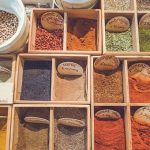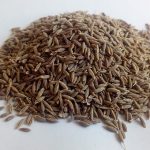Cinnamon is not just a flavoring spice. Cinnamon is a spice with a long history of being used for medicinal purposes. Our ancestors have been using it as a remedy for respiratory and digestive ailments. It is mentioned in many ancient texts and has been used in traditional medicine in many cultures. Many cultures still use cinnamon every day because of its numerous benefits, as well as its sweet flavor and convenience in cooking.
Researchers have found that cinnamon has more antioxidants than any of the 26 most popular herbs and spices in the world. In fact, the spice has more antioxidants than blueberries, garlic, and green tea. The plant also has a number of other benefits for health, including being antibacterial, antifungal, antimicrobial, anticancer and anti-diabetic.
Cinnamon is made from the bark of the Cinnamomum verum or Cinnamomum zeylanicum tree. The compounds in the bark are responsible for its many health-promoting properties.
There are a few things you should know about this powerful spice.
Health Benefits
Cinnamon is one of the oldest spices in the world, and has been used for its healing properties in many forms of traditional medicine for a long time. This spice has many benefits.
1. High in Antioxidants
Cinnamon is full of antioxidants that protect against free radical damage and slow down the aging process. Researchers have found at least 41 different compounds in cinnamon that protect against disease
Cinnamon is ranked 7th on the ORAC scale, which measures the concentration of antioxidants in different foods, herbs, and spices. The antioxidant power of oregano has been shown to be greater than that of commonly consumed herbs like thyme, garlic and rosemary.
Cinnamon contains antioxidants that are attributed to its health benefits, including polyphenols, phenolic acid, and flavonoids. The health benefits of these compounds come from their ability to fight oxidative stress in the body. Oxidative stress is a contributing factor to many chronic diseases, so these compounds may help to prevent those diseases.
The various antioxidants found in this spice help to counterbalance harmful free radicals in the body and stave off oxidative stress.
It also helps lower nitric oxide levels in the blood and prevents fat from oxidizing, both of which can increase the risk of brain disorders, cancer, heart disease and other chronic conditions.
2. Relieves Inflammation
Cinnamon contains antioxidants that may help reduce inflammation and lower the risk of heart disease, cancer, and cognitive decline.
The researchers have identified many different types of flavonoids in the spice, which are all highly effective at fighting the dangerous inflammation levels throughout the body. This powerful spice can lower swelling, prevent inflammation, and be beneficial in pain management.
3. Protects Heart Health
Cinnamon has long been used in traditional medicine to treat a variety of ailments, and new research is beginning to uncover some of the science behind these ancient claims. One of the most well-known cinnamon health benefits is its ability to improve heart health.
It has been shown that it reduces several of the risk factors for heart disease, including high cholesterol levels, high triglyceride levels, and high blood pressure. Diets high in potassium have also been found to lower blood pressure.
Studies have found that cinnamon is beneficial for blood clotting and can control excessive bleeding by assisting the body in creating blood clots.
Cinnamon has circulatory and tissue-repairing benefits that could be helpful in protecting against heart attacks, heart disease, and stroke by aiding in the regeneration of heart tissue.
4. Stabilizes Blood Sugar
Cinnamon is a good food for diabetics because it has anti-diabetic effects. The research shows that it can help to lower blood sugar and make the body more responsive to insulin. This is important because insulin helps to move sugar from the blood into the cells, where it can be used for energy.
Research has shown that cinnamon may help to regulate blood sugar levels by blocking the activity of digestive enzymes which can help to slow the absorption of sugar into the bloodstream after eating a meal high in carbohydrates.
Cinnamon supplements may have significant positive effects on blood sugar markers for people with type 2 diabetes, according to researchers.
Cinnamon can help lower blood sugar in several ways, not just by improving insulin resistance. First, cinnamon has been shown to decrease the amount of sugar that enters your bloodstream after a meal. This is because cinnamon slows down the rate at which your stomach empties, giving your body more time to absorb the sugar. This happens by interfering with many digestive enzymes, which slows the process of breaking down carbohydrates in the digestive system. Additionally, a compound in cinnamon may help to regulate blood sugar levels by mimicking the effects of insulin and improving the uptake of sugar into cells.
Cinnamon has been shown to be beneficial in numerous human studies, including lowering fasting blood sugar levels and improving hemoglobin A1c, a marker of long-term blood sugar control.
Around 1-2 teaspoons of cinnamon per day is considered the effective dose. One to six grams of cinnamon or half to two teaspoons of cinnamon per day can help lower fasting blood sugar levels.
5. Preserves Brain Function
Cinnamon is beneficial for the brain because it contains antioxidants. Antioxidants help to keep the brain healthy and can prevent the development of neurological disorders such as Parkinson’s and Alzheimer’s disease.
In vitro studies suggest that cinnamon may help to prevent the accumulation of a specific protein in the brain, which is associated with a reduced risk of Alzheimer’s disease. However, there is a lack of human studies to confirm these findings.
Studies have found that this compound can help protect neurons against oxidative stress, which can reduce the risk of inflammation and cell damage. This can help preserve brain function and prevent cognitive decline.
6. May Help Lower Cancer Risk
Cinnamon’s antioxidant abilities may protect against DNA damage, cell mutation and cancerous tumor growth. Cinnamon has been found to have health benefits from a compound called cinnamaldehyde. This compound has been shown to inhibit tumor growth, protect DNA from damage, and kill cancer cells.
Studies are currently being done to see if cinnamon can help fight cancer due to its high levels of antioxidants. This spice may be beneficial for people who are more likely to develop cancer. Although more research is needed, cinnamon may help to protect against cancer by reducing inflammation and fighting harmful cells.
Cinnamaldehyde may help to prevent ovarian cancer by blocking the expression of certain proteins involved in cancer growth. Cinnamaldehyde was found to be effective in reducing the growth and spread of ovarian cancer cells in test-tube experiments.
More research is needed to determine if cinnamon has the potential to help prevent cancer in humans.
7. Fights Infections and Viruses
Cinnamon can potentially help the body defend against illness in many ways. Cinnamon oil has antimicrobial, antibiotic, antifungal and antiviral properties. Cinnamon oil can be a good source of antibacterial agents.
Many cultures believe that the cinnamon plant can help fight harmful infections and viruses. Cinnamon oil can protect against bacterial infections, which can cause the common cold, strep throat, and pneumonia.
8. Optimizes Oral Hygiene
A recent study has found that cinnamon may improve oral hygiene by protecting against certain strains of bacteria that cause bad breath, tooth decay, cavities and mouth infections.
The oils from cinnamon can be used as a natural mouthwash to combat bacteria.
Cinnamon has a refreshing taste that can be used as a natural flavoring agent in chewing gums. The spice has the ability to fight bad breath by removing oral bacteria, without adding any chemicals to the body.
It has also been used traditionally as tooth powder and a natural remedy for toothaches, dental problems and mouth sores because of this.
9. Could Improve Sensitivity to Insulin
Insulin helps to regulate the metabolism and use of energy in the body It’s also essential for transporting blood sugar from your bloodstream to your cells so that they can use it for energy.
However, some people’s bodies don’t respond to insulin the way they’re supposed to. This is a condition where the body does not respond properly to insulin, which is a hallmark of conditions like metabolic syndrome and type 2 diabetes.
Cinnamon may be able to reduce insulin resistance, although more research is needed to confirm this. Cinnamon can help regulate blood sugar levels by making cells more sensitive to insulin.
Cinnamon has been shown to help the body better respond to insulin, which can improve blood sugar levels.
10. May Have Beneficial Effects on Neurodegenerative Diseases
Diseases that cause degeneration of the nervous system cells are called neurodegenerative diseases. These diseases are characterized by a gradual loss of the function or structure of nerve cells. There are two common types of Alzheimer’s and Parkinson’s disease.
Compounds in cinnamon seem to stop the tau protein from building up in the brain. This protein is one of the signs of Alzheimer’s disease.
Cinnamon was found to help protect neurons, normalize neurotransmitter levels, and improve motor function in a 2014 study of mice with Parkinson’s disease. More research is needed to determine the effects of this in humans.
Cinnamon has led to improvements for Alzheimer’s and Parkinson’s in animal studies, but it’s not clear yet if the same effects would happen in humans. However, human research is lacking.
11. May Prevent Bacterial and Fungal Infections
The main active component in cinnamon, cinnamaldehyde, may help protect against various types of infection. Cinnamon oil may be effective in killing certain fungi that cause respiratory tract infections, according to test-tube studies.
It can also stop certain bacteria, like Listeria and Salmonella, from growing. In addition, the ability of cinnamon to kill microbial cells may also help reduce the risk of tooth decay and improve breath odor.
The evidence is only from test-tube studies, so more research needs to be done with humans. Cinnamaldehyde has the ability to reduce fungal and bacterial infections, as well as tooth decay and bad breath. Further research in humans is needed.
12. May Have Anti-Viral Properties
Cinnamon may help protect against certain viruses, according to some research. Cinnamon extracts from Cassia varieties are thought to be beneficial against HIV-1, the most common strain of HIV in humans.
Other studies have found that cinnamon may also help protect against other viruses, such as influenza and Dengue, which is a viral infection that is spread by mosquitoes.
More human trials are needed to confirm these effects. There is limited research on the effects of cinnamon on humans, but some test-tube studies suggest that it may help protect against certain viruses.
Conclusion
Since ancient times, people have used it as an ingredient. The earliest records of this date back to ancient Egypt. Cinnamon was once a rare and valuable commodity that was seen as a suitable gift for royalty.
Cinnamon is now inexpensive and easy to find in most stores. It can be found in many things we eat and drink. There are two main types of cinnamon:
- Ceylon cinnamon: This type is also known as “true” cinnamon.
- Cassia cinnamon: This is the most common variety today and what people generally refer to as “cinnamon.”
To make cinnamon, the stems of cinnamon trees are cut. The inner bark is then extracted and the woody parts removed. This process is called “decortication.” The inner bark is then ground into a powder and used as a dietary supplement or Make an herbal tea. After it dries, it forms strips that curl up into rolls, called cinnamon sticks. These sticks can be ground to form cinnamon powder.
Cinnamon gets its distinct smell and flavor from cinnamaldehyde, an oily compound. Most of the health and metabolism benefits of cinnamon are due to a compound it contains.
Cinnamon is a popular spice. Cinnamon is thought to be high in cinnamaldehyde, which is responsible for most of its health benefits.









